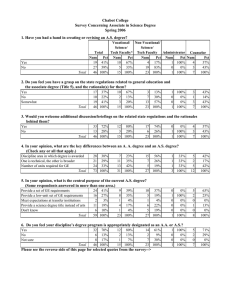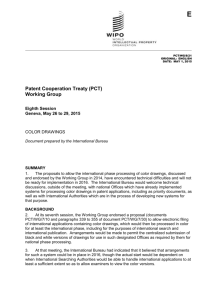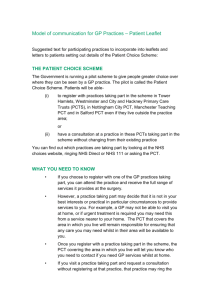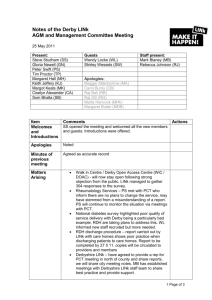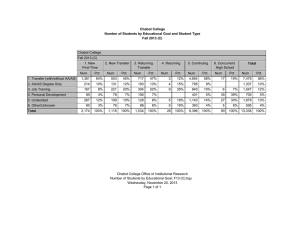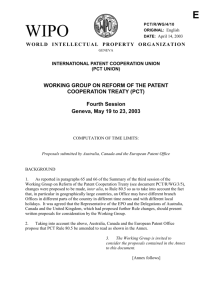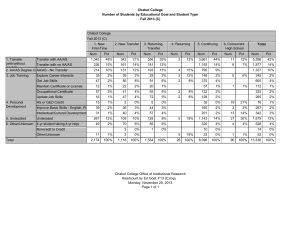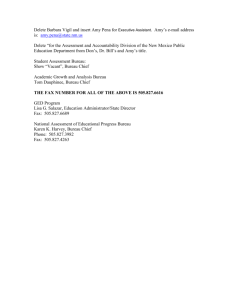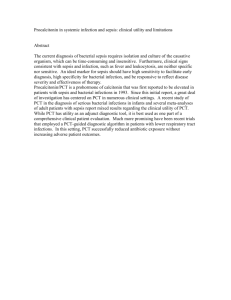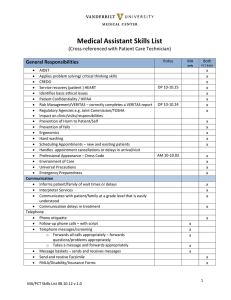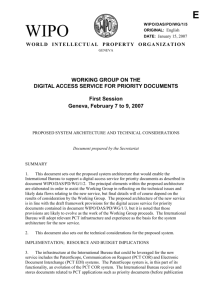PCT/WG/6/13
advertisement
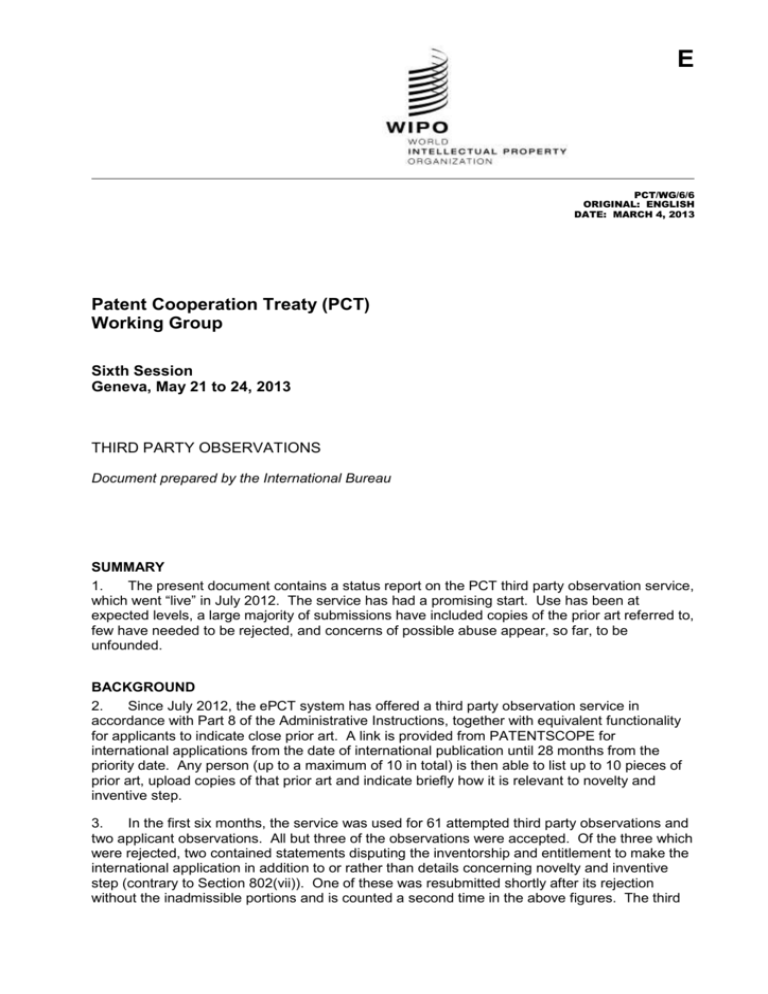
E PCT/WG/6/6 ORIGINAL: ENGLISH DATE: MARCH 4, 2013 Patent Cooperation Treaty (PCT) Working Group Sixth Session Geneva, May 21 to 24, 2013 THIRD PARTY OBSERVATIONS Document prepared by the International Bureau SUMMARY 1. The present document contains a status report on the PCT third party observation service, which went “live” in July 2012. The service has had a promising start. Use has been at expected levels, a large majority of submissions have included copies of the prior art referred to, few have needed to be rejected, and concerns of possible abuse appear, so far, to be unfounded. BACKGROUND 2. Since July 2012, the ePCT system has offered a third party observation service in accordance with Part 8 of the Administrative Instructions, together with equivalent functionality for applicants to indicate close prior art. A link is provided from PATENTSCOPE for international applications from the date of international publication until 28 months from the priority date. Any person (up to a maximum of 10 in total) is then able to list up to 10 pieces of prior art, upload copies of that prior art and indicate briefly how it is relevant to novelty and inventive step. 3. In the first six months, the service was used for 61 attempted third party observations and two applicant observations. All but three of the observations were accepted. Of the three which were rejected, two contained statements disputing the inventorship and entitlement to make the international application in addition to or rather than details concerning novelty and inventive step (contrary to Section 802(vii)). One of these was resubmitted shortly after its rejection without the inadmissible portions and is counted a second time in the above figures. The third PCT/WG/6/6 page 2 rejection appears to have been an error, where the only cited document was the publication of the international application itself, with the “brief explanation” not providing any indication of how or why this was intended to be considered prior art. There have been no cases which suggest deliberate attempts to abuse the system in order to inconvenience applicants or Offices using large quantities of prior art of likely low relevance. 98% of the documents referred to in the third party observations were uploaded with the observation. 4. All but nine of the third party observations were submitted anonymously. Four international applications had two observations made; no more than two observations were made on any single international application. A large majority of observations were submitted in English, but observations were also submitted in French (1), German (2) and Japanese (2). 5. Four observations were submitted before the receipt by the International Bureau of the international search report. Four observations were submitted on international applications where international preliminary examination had been demanded but the international preliminary examination report had not yet been received by the International Bureau. 6. The distribution of number of cited documents included in the accepted third party observations is shown in the chart below. 20 18 16 Number of observations 14 12 10 8 6 4 2 0 1 2 3 4 5 6 7 8 9 10 Number of documents referred to FEEDBACK AND DEVELOPMENT 7. Feedback from those making third party observations has been generally positive. The main request for improvement, received from almost all those commenting, is that longer “brief explanations of relevance” should be permitted, since in many cases 500 characters is insufficient to properly explain the relevance, especially when many claims are involved. Some third parties would like the opportunity to submit observations on issues going beyond novelty, inventive step and industrial applicability. The International Bureau proposes to review the need for such substantive changes to the system and make any necessary proposals to Contracting States in 2014, when national phase processing may have begun on more than a handful of international applications for which third party observations have been submitted. PCT/WG/6/6 page 3 8. In response to other comments, a preview function has been added to allow third parties to see how their observation will appear once it has been submitted, noting that there is no possibility to edit it afterwards. 9. Other improvements to the system of a procedural nature which the International Bureau intends to introduce include the ability to save a draft observation and automatic labeling of the uploaded copies of prior art to allow easier matching of the documents with the relevant parts of the observation. 10. The Working Group is invited to note the contents of this document. [End of document]
